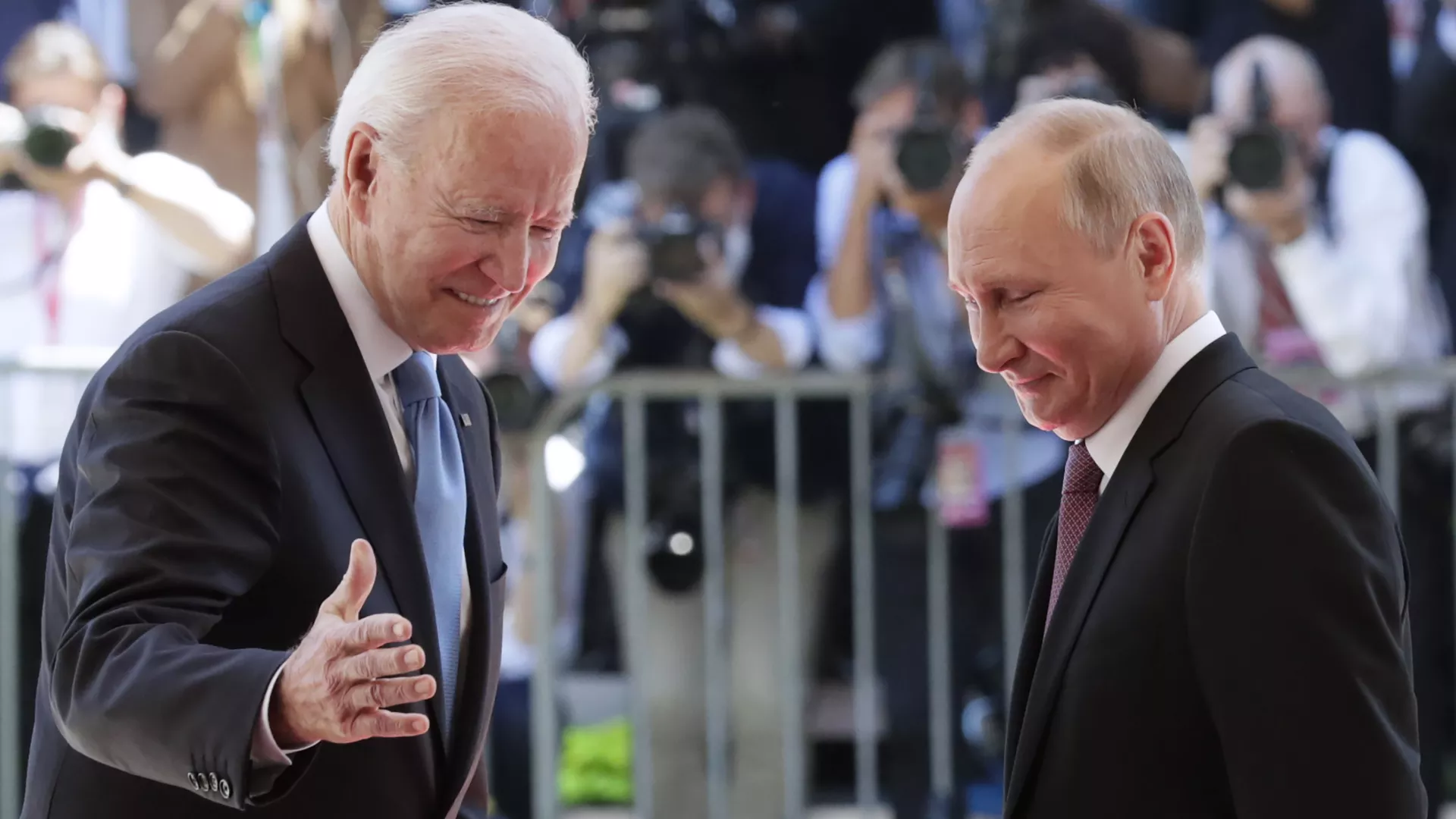Most observers are skeptical that any substantive progress has been made in improving Russian-US relations since last summer’s Putin-Biden Summit in Geneva that they nowadays largely regard as a mostly symbolic act in hindsight. That perception is inaccurate, however, as confirmed by a report late last month from the popular and reputable Russian business daily Kommersant. Although it’s in Russian, Google Translate does a decent job of conveying its main points.
The gist is that unnamed Russian sources confirmed that cooperation on cyber security issues against non-state actors such as those responsible for ransomware and other such attacks represents an example of mutually beneficial pragmatic interactions between these rival Great Powers. The US has sought to keep their work on this issue low-key due to domestic political sensitivities most likely connected to the fact that a Democrat President whose party is infamous for its vicious Russophobia in recent years greenlit their cooperation.
Some significant strategic insight can be gleaned from this revelation. First, the US finally realized that it must pragmatically cooperate with Russia against the shared threat posed by non-state cyber security actors, something that the Kremlin has been proposing for years already but was regularly rebuffed until recently. Second, it wasn’t until this year’s spree of ransomware attacks in the US that Washington decided to take Moscow up on its long-standing offer.
Third, Russian experts earlier concluded that the majority of the cyber attacks against their nation come from the US, which means that cooperation with their rival in this respect is mutually beneficial from the perspective of cyber security. Each Great Power can respond to cyber threats against the other that their counterpart is able to prove came from their territory. Neither country has an interest in non-state actors escalating such attacks against their rival to the point of potentially provoking a state-level response that could worsen their tensions.

These three strategically insightful points speak to how influential the cyber domain has become for international security in recent years as well as the dangerously growing role that non-state actors have come to play in this field. The emerging polycentric world order means that states no longer have an exclusive monopoly on International Relations which can nowadays be influenced by non-state actors like those responsible for carrying out cyber security attacks against Russia and the US.
Those rival Great Powers’ low-key cooperation in this respect can potentially set the basis for further cooperation in dealing with other non-state threats to their security in the future such as climate change, pandemics, terrorism, organized crime, drugs, and human smuggling, et al. It also shows that there’s the political will on both sides to pragmatically regulate their rivalry by removing elements of unpredictability from it, in particular the role that non-state actors could play in worsening their tensions.
This is thematically consistent with the purpose of last summer’s summit between their two leaders. That event has yet to result in the significant de-escalation of international tensions but the reported progress made on the cyber security front raises hope that this too will follow with time. This is because there are grander strategic motivations influencing this process in that direction, namely those related to the ongoing New Cold War between the American and Chinese superpowers.
I conducted a detailed scenario forecast for the Russian International Affairs Council (RIAC) in June about the most likely trajectory of International Relations should the Russian-US rivalry be responsibly regulated at some future time like both of their leaders arguably intend to do. My general thesis was indirectly seconded by one of Russia’s top experts, Fyodor Lukyanov, in his recent RT analysis titled “Biden’s bid to woo Moscow shows US is tired of conflict with Russia over Ukraine, and is more worried about war with China instead”.
There’s more evidence pointing in this direction than just that. The US’ decision to waive most Nord Stream II sanctions earlier this year suggested that “Poland & Ukraine, Not Afghanistan, Were The First US Allies To Be Abandoned By Biden” in pursuit of this “New Detente” (or at the very least “non-aggression pact”) with Russia. Then there was Under Secretary of State Victoria Nuland’s trip to Moscow this week for talks which was only made possible by each side lifting restrictions on the other’s diplomats.
President Putin’s Deputy Chief of Staff Dmitry Kozak, who’s also Russia’s chief negotiator on Ukraine, announced after the meeting that the US agreed that Ukraine should respect the Minsk Accords by granting Donbass autonomy. This is a significant shift in the US’ position since it had previously encouraged its Eastern European proxy to unilaterally defy key provisions of that agreement. President Putin then said that both countries have “constructive” relations and that he himself has “working, stable relations” with Biden.
Furthermore, this high-level diplomatic meeting in Moscow was preceded by Buzzfeed reporting that the FBI and Department of Justice (DOJ) are unprecedentedly investigating an American fascist for war crimes that he allegedly committed against noncombatants in Eastern Ukraine. The cumulative effect of these three developments is that the US is seemingly willing to reach a compromise with Russia on the highly sensitive issue of Ukraine in pursuit of its “New Detente”/”non-aggression pact” so as to focus more on China.
It’s against this grand strategic context that their earlier analyzed low-key cyber security cooperation takes on a greater significance. It enabled both rival Great Powers to establish an element of much-needed trust in dealing with an issue of mutual importance that in turn led to them making piecemeal progress on other topics such as Ukraine. It’s for these reasons that those who express skepticism about the progress that Russia and the US made in responsibly regulating their rivalry since Geneva aren’t reflecting an accurate assessment of their ties.
Source: One World














Comments